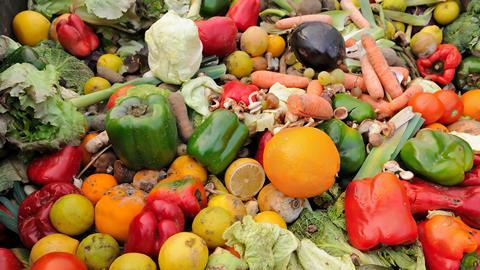Compulsory food waste reporting will not be required of large UK food and drink companies until 2026 at the earliest, Government announces
Despite first promising a mandate in 2018, it won’t be until 2026 at the earliest that large food and drink businesses are required to report their food waste figures.
Defra confirmed the delay on 28 July as part of a wide-reaching update to its 2018 Resources and Waste Strategy. The announcement follows delays to consultations on several key parts of the strategy caused by Covid and the cost-of-living crisis.
Consultations closed a year ago on mandatory food waste reporting for large UK businesses and industry bodies in the food and drink sector began pushing for answers in July.
Defra decided not to make food waste reporting compulsory until the end of 2026 at the earliest, despite 80 per cent of respondents in a government consultation saying they were in favour of a mandate.
Defra noted in that dozens of businesses are already signed up to Wrap’s food waste reduction roadmap, which requires annual reporting and collaborative efforts to reduce waste.
Retailers participating have reduced waste by eight per cent since 2018, while producers and manufacturers have achieved a 1.4 per cent reduction.
Defra also pointed out that food redistribution became more widespread during the pandemic and during the subsequent cost-of-living crisis. Redistribution rates have trebled since 2018, according to Defra estimates.
Too Good to Go’s co-founder Jamie Crummie responded by calling on the Government to “urgently reconsider” its decision.
“This decision comes as a significant blow to the country’s efforts in reducing food waste, especially during a cost-of-living crisis, and poses risks of exacerbating dangerous environmental challenges.
“Neglecting food waste reduction has far-reaching global consequences, with food waste contributing 10% of all greenhouse gas emissions, surpassing even the aviation industry’s impact.
“Defra’s decision feels particularly disheartening and regressive, especially when compared to the European Commission’s recent legislative proposal to introduce legally binding food waste reduction targets.
“The consultation response not only reflects a worrying lack of urgency on this crucial issue but also poses a dangerous threat to our collective ability to achieve the ambitious 2030 environmental and 2050 net zero goals.”
Company Shop Group has stores nationwide and is the UK’s largest redistributor of food, drinks, and household staples. The redistributor’s managing director Owen McLellan urged businesses to plan ahead for the eventual rule change.
“Whether reporting is mandated or remains voluntary, having access to more robust and transparent data would support all of us in reducing food waste,” he said.
“We would encourage businesses to make the most of the voluntary period and prepare for future regulation by improving their own visibility of waste, and ensuring they have sustainable redistribution processes in place.
“We regularly see the strongest improvements being made by businesses that understand the scale and nature of surplus and waste in their organisations. Those that have visibility in place have not only reduced their waste footprint, but have unlocked the financial, environmental and social benefits of surplus food redistribution.”




